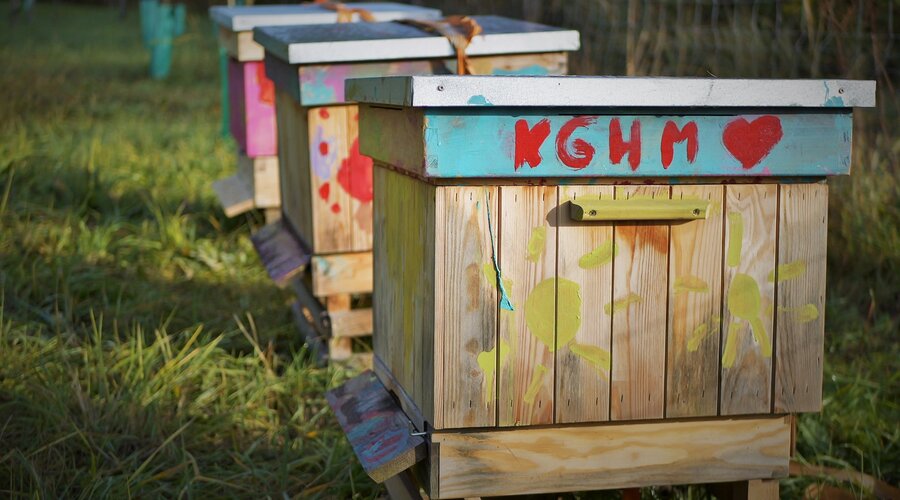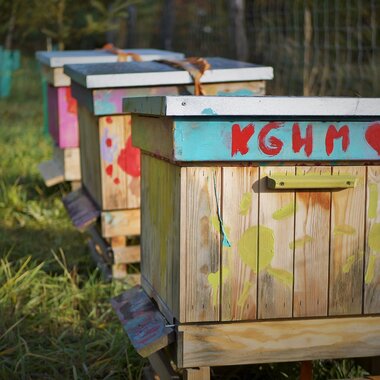KGHM expands its apiaries - three new beehives set up at the Głogów Copper Smelter
Autumn bee preparations for winter - KGHM continues its 'Copper Bees’ programme to protect and support local ecosystems. On the site next to the Głogów Copper Smelter, three new apiaries have been set up, which will join the existing 15 hives at other divisions of the company. KGHM actively supports and engages in pro-environmental activities.
Apiaries at KGHM divisions
Three new hives at the Głogów Copper Smelter were inhabited by bees of the 'Krainka' breed. Insects of this breed adapt very quickly in a new location, are highly immune and can be successfully reared in urban environments. This year, from one of our hives, we managed to obtain about 3 kg of honey. KGHM's apiaries are monitored and the bees are cared for by professional bee keepers.
Bee keeping in autumn - a crucial time for bee survival
Autumn is an intensive period for bee keepers and the preparation of bee colonies for winter. When the temperature starts to drop, bees cluster around the queen, forming what is known as a tangle, which helps to keep the temperature in the hive at 24-26 degrees Celsius. To ensure that the bees survive the winter, bee keepers at KGHM provide them with adequate food supplies and monitor the condition of the queens, the health of the colonies, and the strength of the hives. It is important not to disturb the bees in winter - it is their time to rest and regenerate.
‘Copper Bees’ - bees guarding the ecosystem
KGHM's ‘Copper Bees’ programme currently comprises 18 beehives located at the company's plants, at the Hydrotechnical Facility and the Lubin, Rudna, Legnica, Cedynia, and Głogów Mining Facilities. The first honey harvest organised by KGHM as part of this project made it possible to collect several hundred jars of honey - a symbol of the bees' dedication and the effect of their work for nature. In addition, the event provided an opportunity for education - the company’s employees and media representatives were able to see the bees with their own eyes in a special glass hive and learn more about their lives and the value of honey plants.
KGHM’s care, education, and continued commitment to ecology
As part of the ‘Copper Bees’ programme, KGHM organises workshops not only for its employees, but also for the youngest inhabitants of Lower Silesia. Bee keepers visit kindergartens and schools in the region.
KGHM carries out a number of pro-environmental and pro-social activities, such as planting of trees and protection of endangered species, including peregrine falcons.









